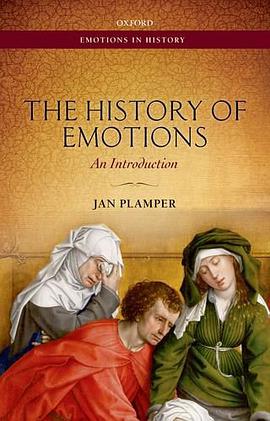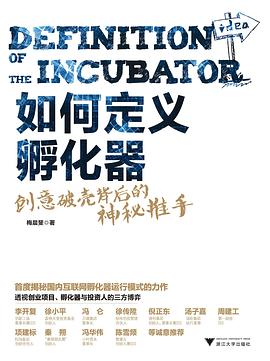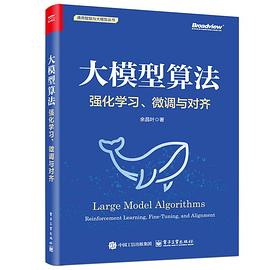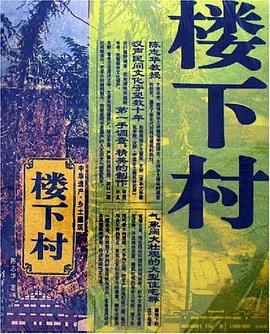The History of Emotions
内容简介
The history of emotions is one of the fastest growing fields in current historical debate, and this is the first book-length introduction to the field, synthesizing the current research, and offering direction for future study. The History of Emotions is organized around the debate between social constructivist and universalist theories of emotion that has shaped most emotions research in a variety of disciplines for more than a hundred years: social constructivists believe that emotions are largely learned and subject to historical change, while universalists insist on the timelessness and pan-culturalism of emotions. In historicizing and problematizing this binary, Jan Plamper opens emotions research beyond constructivism and universalism;
......(更多)
作者简介
Jan Plamper obtained a BA from Brandeis University and a PhD from the University of California, Berkeley, after which he taught at the University of Tubingen and from 2008 to 2012 was a Dilthey Fellow at the Center for the History of Emotions, Max Planck Institute for Human Development, in Berlin. He is co-editor, with Benjamin Lazier, of Fear: Across the Disciplines (2012); and co-editor, with Marc Elie and Schamma Schahadat, of Rossiiskaia imperiia chuvstv: Podkhody k kul'turnoi istorii emotsii [In the Realm of Russian Feelings: Approaches to the Cultural History of Emotions] (2010). He has also recently authored The Stalin Cult: A Study in the Alchemy of Power (2012).
......(更多)
目录
List of Figures xv
History and Emotions: An Introduction 1
1 What Is Emotion? 9
2 Who Has Emotion? 25
3 Where Is Emotion? 29
4 Do Emotions Have a History? 32
5 What Sources Might We Use in Writing the History of Emotions? 33
One: The History of the History of Emotions 40
1 Lucien Febvre and the History of Emotions 40
2 The History of Emotions Prior to Febvre 43
3 The History of Emotions in the Time of Febvre and After 49
4 The History of Emotions and 9/11 60
5 Barbara H. Rosenwein and Emotional Communities 67
Two: Social Constructivism: Anthropology 75
1 The Varieties of Emotions 75
2 Emotions in Travel Writings and Early Anthropology 80
3 Emotions in the Anthropological Classics 83
4 Early Anthropology of Emotions in the 1970s 90
The Emotions of Inuits 90
Emotions ‘Hypercognized’ and ‘Hypocognized’ 95
5 The Linguistic Turn and Social Constructivism 98 Headhunting for Pleasure 99 Poetry, Not Tears, as the Medium of Authentic Feelings 102 The Height of Social Constructivism 106
6 Social Constructivism alongside Rosaldo, Abu-Lughod, and Lutz 109
7 The Social Constructivist Anthropology of Emotions: Some Preliminary Conclusions 114 Excursus I: Sociology 117
8 The 1990s I: The Anthropology of Emotions after Social
Constructivism 129 Excursus II: The Linguistics of Emotion 130
9 The 1990s II: The Supersession of the Social Constructivism–Universalism Duality? 136
10 Recent Universalist Anthropology of Emotions 142
Three: Universalism: Life Sciences
1 Paul Ekman and Basic Emotions
2 Road Map for Chapter Three
3 Charles Darwin’s The Expression of the Emotions in Man and
Animals (1872), or, How One Book Became a Battlefield between
147 147 163
Social Constructivists and Universalists 164
4 The Beginnings of Psychological Research into Emotions, or, How
Feelings, Passions, and Changes of Mood Migrated from Theology to
Psychology and in the Process Became ‘Emotions’ 173
5 Emotion Laboratories and Laboratory Emotions, or, the Birth of
Psychological Conceptions of Emotion from the Experimental Spirit 178
6 How Ideas of Social Order Also Ordered the Interior of the Brain 186
7 Research into the Emotional Response of the Brain 188
The Cannon–Bard Theory 191 The Papez Circuit 192 The Limbic System 193
8 Freud’s Missing Theory of Feeling 195
9 The Boom in the Psychology of Emotion from the 1960s Onwards 201
10 A Synthetic Cognitive-Physiological Theory of Emotion: The
Schachter–Singer Model 202
11 Evaluating Emotions: Cognitive Psychology and Appraisal Models 204
12 The Neurosciences, fMRI Scanning, and Other Imaging Procedures 206
13 Joseph LeDoux and the Two Roads to Fear 212
14 Antonio R. Damasio and the Somatic Marker Hypothesis 214
15 Giacomo Rizzolatti, Vittorio Gallese, Marco Iacoboni, Mirror
Neurons, and Social Emotions 219
16 On the Shoulders of Dwarves, or, The Neurosciences as a ‘Trojan
Horse’ for the Human and Social Sciences 225
17 Affectarians of All Lands, Unite! The Neurosciences as Represented
by Hardt, Negri, & Co. 237
18 Borrowings from the Neurosciences: An Interim Balance 240
19 Beyond all Divides: The Critical Neurosciences and Genuine Possibilities
for Cooperation 243 Functional Specification, also Known as Functional Segregation 244 Neuroplasticity 247 Social Neurosciences 248
Four: Perspectives in the History of Emotions 251
1 The Navigation of Feeling: William M. Reddy’s Attempt to Move
Beyond Social Constructivism and Universalism 251
2 Emotional Practices 265
Mobilizing Emotional Practices 266 Naming Emotional Practices 267
Communicating Emotional Practices 267
Regulating Emotional Practices 268
3 Neurohistory 270
4 Perspectives in the History of Emotion 276
Political History, Social Movements, and Emotions 277
Economic History and Emotions 282
Legal History and Emotions 284 Media History and Emotions 285
Oral History, Memory, and Emotions 287 Historians as Emotional Beings 290
5 Prospects 293
Conclusion 297
Glossary 301
Select Bibliography 309
Index 343
......(更多)
读书文摘
她写了一篇很有影响力的文章,描述了一个既作为自我又作为他者的“双重身份”人类学家的田野考察生活。
......(更多)






